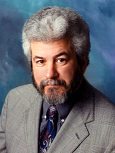 Solutions for shaping a healthy future are challenging at best ... especially for our nation's adolescents.
Solutions for shaping a healthy future are challenging at best ... especially for our nation's adolescents.
The national statistics tell the real story. It has been estimated that more than 75% of adolescent deaths are due to homicides or suicides. Most are associated with high risk behaviors. Adolescents today literally walk the gauntlet of sexually transmitted diseases, multiple infections including HIV, unwanted pregnancies, accidents associated with alcohol and drug use, and long term effects of violence. Unfortunately these trends appear to be worsening.
While it is well-established that positive social skills and involvement in religious activities serve as protective factors, most attempts to reduce risky behaviors tend to fail. However, a recent study reported in the Archives of Pediatrics and Adolescent Medicine is shedding new light and hope in an arena where we need to make a difference.
The research conducted at an adolescent health service in a suburban community based teaching hospital in New Jersey sampled 294 young individuals who were receiving care. The participants were from various race, ethnic and socioeconomic backgrounds. Responses were collected from a self-administered anonymous questionnaire. Questions were focused on family interactions, academics, involvement in risky behaviors and what ultimately turned out to be a rather significant factor - the presence of an adult mentor.
Actually the word, "mentor" was never used. Instead the researchers asked the following question: "Is there an adult in your life you can usually turn to for help and advice?" Subjects simply checked "yes" or "no."
The risky behaviors reported by the participants, 68% of whom were female included: sex with more than one partner in the last 6 months (26%); currently smoking five or more cigarettes per day (23%); use of illicit drugs in the last 30 days (22%); ever carrying a weapon (18%); and having three or more alcoholic beverages in the past 30 days (15%).
Of importance is the fact that adolescents who reported having an adult mentor demonstrated statistically significant less participation in all risky activities mentioned above except for alcohol use.
You're probably asking yourself who were the mentors. Of the respondents who noted a mentor (68% of the participants), 51% identified their mother, 9% noted their father and less than 1% listed their doctor.
As a physician and a parent, I find this study most enlightening from many perspectives. It never ceases to surprise me how solutions for extraordinarily complex problems are often so simple. Perhaps it's time to rethink our expectations and our involvement with our children.
It's time for a wake up call, America. A nation that depends on others to raise our children is on the wrong track. Placing unprecedented demands on teachers and our school systems that cannot meet those challenges is not the answer. Lecturing to children about smoking cessation, or safe sex, or saying "no" to drugs simply doesn't work!
Some people believe the best way to approach this issue is to create volunteer mentoring programs. This is certainly a valid approach supported by my contention that if we treated every child as if he/she were our own, many of our nation's problems would diminish substantially. Yet how can we expect our children to develop healthy behaviors when smoking, drinking to excess and using illicit substances is acceptable behavior in so many American homes?
While you might be challenging this perspective for a number of reasons, why not rethink the results of this investigation from your own perspective. Ask yourself if you are a mentor for your child. What is a "mentor?" Simply stated, the qualities that matter the most are setting an appropriate example, dedicating quality time for listening, offering constructive solutions/choices and developing a fundamental sense of trust. Ask yourself if your child can turn to you in a time of need. And know that you can become a mentor if you choose to do so.
Now is the best time to set a positive example that can ultimately serve to sculpt a healthy future for our offspring. Children learn by example and through caring personal connections. Establishing a nurturing environment and a supportive trusting relationship with our children will enable the seeds of our nation's future to blossom one child at a time - Mind Over Matter!
© 2000 Barry Bittman,
MD all rights reserved
Barry Bittman, MD is a neurologist, author, international speaker, inventor and researcher. He is the CEO and Director of the Mind-Body Wellness Center, 18201 Conneaut Lake Road in Meadville, phone (814) 724-1765, fax (814) 333-8662, www.mind-body.org.
Contact Dr. Bittman